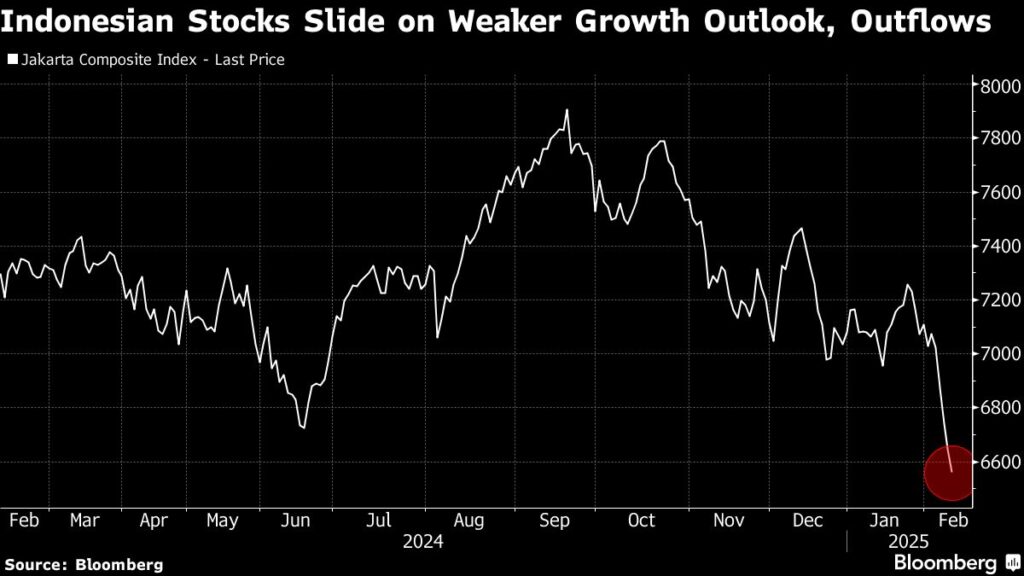(Bloomberg) — Indonesian President Prabowo Subianto doubled down on a push to slash spending and reallocate funds to his signature social programs, criticizing opposition from “little kings” even as concerns rise that the cuts could prove a drag on Southeast Asia’s largest economy.
Most Read from Bloomberg
The former general on Monday said he would make good on campaign pledges to fund social welfare programs despite “those who are against me.”
“In the bureaucracy, there are those who already feel immune to the law, who feel like they have become little kings,” he said in an address to the Islamic organization Nahdlatul Ulama, without elaborating on the source of opposition to his plans. “I want to save money, and that money is for the people.”
In recent days, spending by ministries, agencies and local governments has been largely frozen, with some offices switching off lights and suspending elevators. Officials are under orders to come up with as much as $19 billion in spending cuts to free up money for Prabowo’s populist programs, including school renovations, free lunches for students and free health screenings.
That scale of reallocation — roughly 8.5% of planned state spending this year — could limit public sector services and halt some infrastructure projects, analysts say.
Speculation over which programs could be cut has added pressure on Indonesia’s benchmark stock index, which fell 1.75% on Tuesday and is headed for its lowest level in nearly two years. The index has shed 8.1% this month on a spate of poor bank earnings and foreign outflows, making it the region’s biggest loser.
“Equity investors are worried that the budget cuts will degrade public sector performance, especially in infrastructure development,” said Lionel Priyadi, macro strategist at PT Mega Capital Indonesia in Jakarta.
Industries like construction, travel and accommodation may be the most directly affected, as they tend to benefit from government spending and travel, analysts said. Corporate earnings could also be hit by softer demand, and the social programs of Prabowo, who took office in October, are in their infancy and may not soon offset lower state spending.
Significant cuts in government routine and capital spending “could drag down confidence and domestic private sector capex, slowing down domestic demand more broadly,” Citigroup economist Helmi Arman wrote in a recent note.
Story Continues


